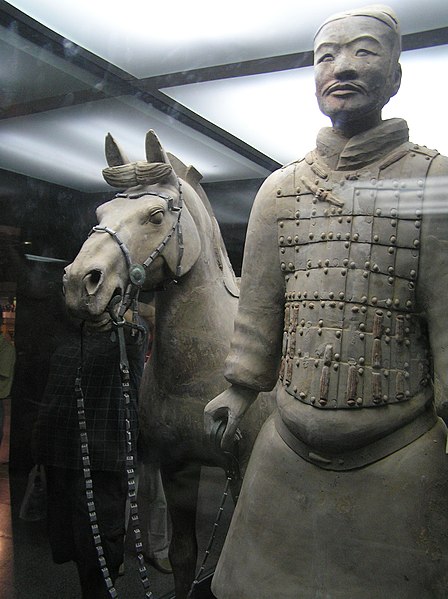I should have done this post a long time ago, but I would like to talk about the Chinese New Year! I was really surprised that I didn’t see more events going on in State College for this festival, seeing as there are many, many international Chinese students here. My goal for next year is to go to China Town in New York to celebrate this festival with everyone.
So what exactly is the Chinese New Year? It’s the most important, and longest, holiday in China. It begins on the first day of the lunar calendar, which varies every year, and lasts for a total of 15 days. Other names to refer to this event are Lunar New Year and Spring Festival, for obvious reasons. During the Han Dynasty (206 BC – AD 25), at the end of the year farmers would celebrate the end of their harvests and offer thanks to the gods for good harvests and good crops in the following year. After that, it blossomed into something much bigger. Traditions started developing and it became a way to ensure that the next 12 months would bring fortune, luck, and prosperity.
During the 15 day long celebration, there are a many, many different rituals performed on each day. For example, it is extremely important to hang the character “Fu” on one’s front door. Fu means ‘blessing’ or ‘happiness’, but when pronounced in its inverted orientation it is the same as the Chinese word for ‘arrival’. Thus, taken altogether, the message conveyed is the arrival of blessing and happiness. One must also clean their house of filth and grime, which also sweeps out the bad luck in your home.
When the big day arrives, it is traditional to dress in a fresh set of red clothes, symbolic of a new start to the new year, and then to give a red envelope containing money, known as Hong Kao, to any children you might have. Again, this is not dissimilar to the tradition of giving a stocking at Christmas; in fact, depending on the style of red attire you’ve chosen, you might even look like Santa Claus too.
The theme of concealed money can also be found in the culinary feast that most Chinese families enjoy together the night before, on New Year’s Eve. Gold bar-shaped dumplings called jiaozi (learned that in my Chinese class, win) are traditionally served, of which one contains a coin. The person who finds the coin is believed to receive luck for the ensuing year, unless, of course, they chip their tooth on the coin in the process.
It wouldn’t be a celebration – and it certainly wouldn’t be Chinese – without a firework display, the origin of which can be traced back to ancient times when the abrupt explosions and violent flares of detonating gunpowder was believed to repel evil spirits. Indeed, they are an especially effective deterrent to the Nian, a beast that once appeared with a special taste for children in coincidence with New Year. Coincidentally, the Nian is also terrified of the color red.
The story of the Nian is portrayed by the lion dance that weaves energetically through the celebrations which mark Chinese New Year. Two performers manipulate the jiggling creature into a stream of entertaining moves to the delight of onlookers, demonstrating techniques and movements that can be very closely associated with martial arts.
I can’t wait to celebrate this holiday next year, even though I’m not Chinese (I won’t tell if you won’t). Xin Nian Kuaile~ (Literally, New Year Happy).














